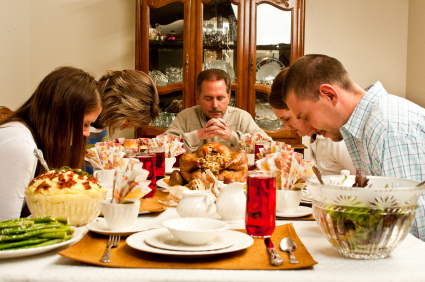The world and all its desires pass away, but the man who does the will of God lives forever. 1 John 2:17 NIV
Some of my best growth times with the Lord have been during teaching times with my children. I remember when my son asked an important question, “Daddy, what is the ‘will of God’?”
Now, he wasn’t asking, “What does God want me to do?” It was more general than that. He simply wanted to know what the phrase “will of God” meant. He had heard others say the term many times, but he never understood it. My hope is that you and I can also grow through this experience.
I explained to him in a way that has always helped me understand the will of God in my life. Understand this is a paradigm for understanding God’s will, not a script according to Scripture. I believe there are Bible verses that can further define each one of these (I’ve put a couple in parenthesis after each one for example), but my intent here is simply to help people process God’s will for their life.
First there is God’s individual will.
That is for the individual decisions you and I make each day. You know that God cares intimately for you, even down to the number of hairs on your head. God does allow, however, for you to make some decisions for yourself in life. You may choose what to eat for breakfast or you may choose a red car instead of a blue. It isn’t that God doesn’t care which you get, but He most likely will allow you to make that decision. (Proverbs 16:9, Jeremiah 29:4-6, Genesis 13:11)
Second, there is God’s moral will.
God’s desire for you is that you develop your character into the image of Christ. He will present you with every opportunity for you to do just that, but you will play a part in how far you grow spiritually. You may choose to love your neighbor as yourself or you may choose to be a very selfish person. God, however, is very concerned about your character, and for His moral will for your life. In fact, God cares more that His moral will for your life be done than His individual will, because God is in the character-changing business. (Philippians 2:5, Galatians 5:22-23, Romans 12:1-2)
Third, there is God’s sovereign will.
God has a will that is set in stone! It won’t change. It can’t change. It always stays the same! For example, God cannot help but love you because that is His sovereign will. God cannot break His promises, because that is His sovereign will. Some things God has set into motion, and they will never be different. (Job 42:2, Deuteronomy 4:39, Isaiah 45:18)
I don’t know what God’s individual will is for your life. (I hope today it includes your favorite cereal and a shiny red convertible…if that’s your color.) But I can tell you this. His moral will is that you be like His Son Jesus.
That begins with your sincere faith in Jesus as your Savior! And better yet, His sovereign will says that because of your faith in Him, He has reserved you a place in Heaven!
Do you struggle to know God’s will for your life sometimes?






 Logging you in...
Logging you in...
 Loading IntenseDebate Comments...
Loading IntenseDebate Comments...
Thank you. Byron and I are praying, or at least trying to, to the best of our feeble ability.
"I like it."~Byron on this post.
Off to study the verses now…
Awesome. Love you guys!
Amen Ron…this is a constant struggle for me. I can look at my life, say 5-10 years ago, and see now that I was having trouble knowing God's will because I had put myself in a position not to know. I had wandered from the path that I believe He wanted me on and, like Peter attempting to walk on the water, had taken my eye off of Him, but in my case I didn't know it.
Today, I'm in a much better spot and can, I believe, in the most important areas of my life discern His will for me. This is mostly because I can see the direction clearly spelled out in Scripture. The frustrating thing for me is when I do those things or act in that manner I seem to either go nowhere or the "reward" or response that I would think I would get from Him or others is missing. Then this makes me think, that even though I can read what I ought to do, perhaps I am still missing something. I guess I truly would like it if He'd actually say to me; here do this or yes, you are going in the right direction, you just haven't been on the road long enough.
While brevity is often a noble goal, sometimes using more words results in clearer communication of valuable ideas. Lengthiness should never be a means to its own end, but sometimes it is a necessary evil.
As for how to answer people who ask you how they can "know God's will," honestly answering, "You can't," might yield some interesting results. I would, of course, follow up with something not entirely unlike your original post. People should not, however, be given the impression that they can know God's will in an epistemological sense. In my humble opinion, that kind of illusion of certainty all too often leads to unhealthy, counter-productive, and even arrogant fanaticism. Just my two cents. Thanks for the thought-provoking article and discussion.
Noel, I do believe we can know some elements of God's will. What type of mind should I have? I should have the mind of Christ. (Phil 2:5). That's still undefined, but that provides the joy of discovery.
Thanks!
No argument Noel. I love though when the comment is longer than the post
I guess more people ask me how they can "know God's will", and this is the closest answer I can give them…
Thanks
This article is not about how to know God's will. It's about what "the will of God" means. I'm not sure whether or not that is a criticism. It is an observation. I was ready for a battle on this one, because when someone says, I can tell you how to know the will of God, my instincts and life experiences tell me that person is about to make a fool of themselves. You didn't do that, though. So, part of me wants to say, Hey, false advertising! While another part of me says, Thank you for not actually trying to tell people how to discern the will of God in some kind of epistemological kind-of way.
While I believe it is possible to have strong justification for believing that a thought or word or action is in accord with the will of God, I do not believe that we can "know" what the will of God is in our lives. To have "knowledge" is to have "a true, justified belief." That's what "knowledge" means. That's what it is. To "know" something means to be certain that a belief is both (1) true and (2) justified. Without meeting both those criteria, you don't have knowledge.
It makes sense to say, "I know a chair is a chair." That's what is called a truism. It's true by definition. Also, it makes sense to say, "I know 2 + 2 = 4." That's what "4" means: "2 + 2." That is a mathematical definition, a kind of truism. When we start talking about things that are not true by definition, however, things get more complicated. The reason they get more complicated is because human beings have no sense for truth. We can't see, taste, feel, touch, smell or hear truth. Our sense can be fooled, and our reason can be tricked.
Our sense are powerful, and they are the way we interface with the world around us. Likewise, we may be very intelligent – even wise, in our own way – creatures. Nevertheless, we cannot sense truth. Mere consistency of experience or impression is not enough. Because it is impossible to be certain that a statement is true or that an impression or instinct or … anything outside of mathematics and truisms … is true, we cannot have knowledge. This is the classical argument for skepticism, and I have yet to hear a logically consistent argument that defeats it.
When it comes to knowing the will of God, human beings are woefully inadequate to the task. The only exception might be divine revelation. Even in the case of divine revelation, however, the knowledge imparted to the person to whom knowledge has been divinely revealed is only useful to that person, because that person is the only person who received the revelation. Everyone else has to just take their word for it.
Some people believe this is a problem for religions. I believe, however, that because – if we are honest with ourselves about the nature of knowledge and belief – we depend on our beliefs far more than we depend on true knowledge, our beliefs are far more powerful than knowledge. Knowledge is not power. Knowledge is not existentially fulfilling. Knowledge tells us nothing about the world, or God's will, or each other or even ourselves. Our beliefs, especially our most well-justified beliefs, are what define our understanding of our experiences.
I believe it is important to explain this, because when you understand the value of belief (and the converse value of "knowledge"), I believe it is very difficult to be so certain of everything. One who understands the value of belief understands, also, the value of asking good questions, and always questioning and trying constantly to improve one's understanding of the world around them, and of spiritual matters. The person who fails to understand, who believes, wrongly, that they have obtained "knowledge," rests on their laurels. They stop searching, stop asking, stop trying to improve their understanding.
Like Galileo, I do not feel obliged to believe that the same God who endowed us with sense, reason and intellect has intended us to forego their use. In order to use my senses, reason and intellect for His glory and their highest purpose, I believe that we must each humbly search, always, for clear understanding and insight. We may not be right all the time. We may not "know" the will of God. But if we search faithfully and in good faith for God's will, and we submit our will to His (Luke 22:42), I believe we will rarely err, and when we do, there is grace abundant. (Eph. 2:4-9).